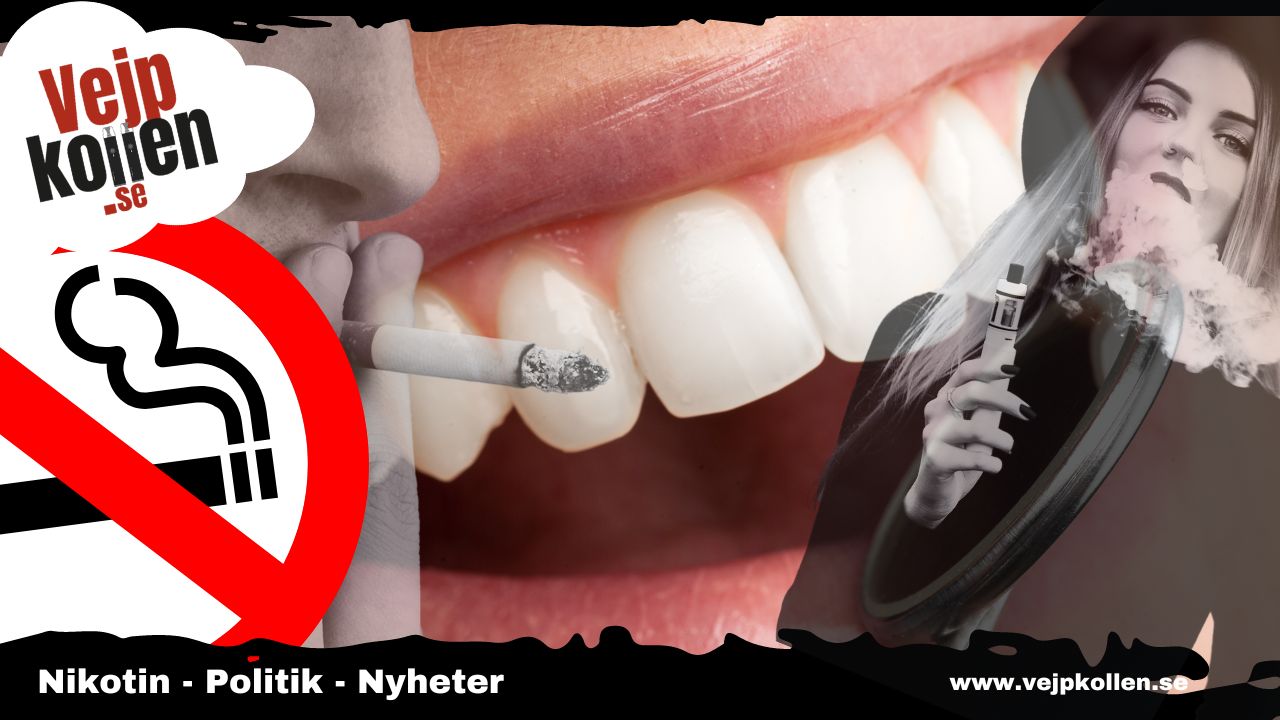A unique study from the University of Catania in Italy showed that those who quit smoking by switching to vejpning and heated tobacco products can regain whiter tooth enamel, similar to the enamel of non-smokers.
Of all the health risks associated with smoking, nicotine yellow teeth may not be the most alarming. But still, it's not particularly attractive, and aesthetics should not be underestimated as a motivating factor to break a bad habit. Vaping, in the form of e-cigarettes and heated tobacco, is often used to facilitate smoking cessation. However, the impact of using these products on teeth is not fully understood.
Compared the teeth of smokers and vejpares
A research team based in Catania, Italy, wanted to find out. By comparing the teeth of smokers, non-smokers and vejp users, they hoped to see if there were any differences in dental effects between smoking and vejping. The study included 18 current smokers, 18 former smokers, 20 never smokers, 15 exclusive HTP (heated tobacco product) users and 18 exclusive vejp users. The participants had their degree of tooth discolouration measured by a digital technique called digital spectrophotometry.
Clear differences
The results of the study showed that tobacco smokers had about 35% worse tooth discolouration than those who had never smoked or quit smoking. The study also showed significantly whiter teeth in ex-smokers who now use e-cigarettes or heated tobacco products compared to tobacco smokers.
The study from CoHEAR (The Centre of Excellence for the Acceleration of Harm Reduction) is the first of its kind and the researchers behind it say that the study highlights a new aspect of oral health among users of smokeless nicotine products.
No tar in the vapour
"Given the design and technology of smokeless nicotine products, our findings come as no surprise. Simply put, the products do not produce the tar-based pigments in tobacco smoke that cause discolouration and staining of teeth," comments Professor Shipra Gupta, lead author of the paper and part of the Periodontology Unit at the Oral Health Sciences Centre in Chandigarh, India.
Improves dental health
As smoke-free nicotine products replace tobacco smoking, this will also affect dental health in general, says Shira Gupta.
"These technologies are expected to reduce the exposure of teeth to tar-related pigments in tobacco smoke, leading to the observed improvement in aesthetic appearance and overall dental health," he continues.
Sources in this article:
CoEHAR research reveals whiter teeth in former smokers using E-Cigarettes or Heated Tobacco Products than tobacco smokers
Editor's note: addiction research
Such as the Road Column usually points out the Centre of Excellence for the Acceleration of Harm Reduction (CoEHAR) at the University of Catania in Italy is largely funded by the Foundation for a Smoke-Free World (FSFW). FSFW is an independent scientific organisation that aims to "accelerate the end of smoking". The Foundation was previously funded by a grant from Philip Morris International (PMI). This co-operation has now ceasedt and the Foundation is seeking new forms of funding.
Research from industry-supported sources should always be read with the economic context in mind. At the same time, we are surrounded by studies in all kinds of fields that are basically funded by a commissioning company, which should not be equated with the research being less robust or serious per se..
Stefan Mathisson
responsible publisher
Road studs




